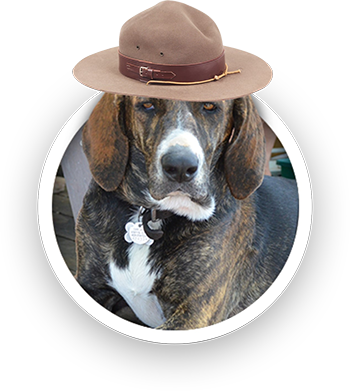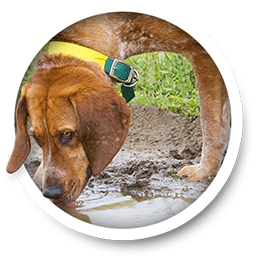Posted on 10/31/2021


Duke here and today I am going to do Diesel. Diesel what is that? A type of internal-combustion engine that burns fuel oil: the ignition is brought about by heat resulting from air compression, instead of by an electric spark as in a gasoline engine. : also diesel engine (or motor). So now you what Diesel is let's get barkin' about Diesel maintenance.
At Allied Auto Works, we hear from a lot of people who are excited about the new diesel engines that will soon be available in passenger cars and SUV's. But our CA friends are often curious about the preventive maintenance requirements. People may not know that diesel engines have long been used extensively in Europe and Asia. In fact, in some markets, there're nearly as many diesel powered passenger cars as there are gasoline.
Here's who's announced or is expected to announce new diesels for North America: BMW, Mercedes, Audi, Volkswagen, Nissan, Honda, Toyota, Hyundai and Subaru. Of course, the US auto makers will be expanding their diesel offerings as well. Diesels will become a very big deal here in CA.
You may ask, why has it taken so long getting to CA and North America? There are a bunch of reasons like fuel tax policies and such, but the biggest hurtle was that CA diesel fuel had a high sulfur content – too high for the latest generation of highly refined diesel engines. Recent government mandates to remove sulfur now opens up CA to the engines the rest of the world's been enjoying for a long time.
Why are diesels so popular worldwide? Well, for starters, diesels get up to 30% better fuel economy than gas engines. And they last a lot longer. And modern diesel engines are refined, quiet and powerful – and there's none of that black smoke we used to see.
Some people may think that diesels create more pollution. But, you need to rethink diesels. Environmental pollution standards for diesel cars and light trucks are scheduled to be as strict as they are for gasoline vehicles. A modern diesel engine is as clean as a gas engine.
Repair costs are similar to vehicles with gas engines. As with gasoline engines, proper maintenance is the key to long engine life and to avoiding repairs. So pretty much what we have come to expect with gas vehicles; coolant system service, transmission service, power brakes, power steering, differential, filters, fuel system and so on. And the payoff for you, if you're the kind that likes to keep your vehicles for a long time, is that a properly maintained diesel engine can last for many, many years.
"The automobile engine will come, and then I will consider my life's work complete." ~ Rudolph Diesel
Duke

Allied Auto Works
2073 Grant Road
Los Altos, CA 94024
650.968.7227
https://www.alliedautoworks.com/
Posted on 10/25/2021


Hello Los Altos on this much-needed rainy day. Cayenne here and do you know what time it is? It is Interval Checking Time. So let's get barkin' on this timely issue now!
Part of the engineering that goes into designing a vehicle is testing the components to ensure that they meet durability and safety standards. Because of this, manufacturers have a good idea as to how long the parts in your vehicle will last under normal driving conditions. For this reason, they give us guidelines to follow regarding how often to inspect the various parts and systems on our vehicles.
Vehicular components are required to meet certain standards. The government mandates some of these standards. Others are set by the auto industry. Recommended car maintenance schedules are designed to help Los Altos vehicle owners maintain these standards. Disregarding routine maintenance or procrastinating preventive maintenance will result in lowered performance and reduced safety for a vehicle.
Maintenance schedules are designed to ensure three areas of automotive performance for Los Altos drivers: protection of the vehicle itself, efficiency and safety.
Protection
Your vehicle's components need protection from dirt, road damage, rust, corrosion, and fuel and combustion by-products. Protective components include filters and fluids.
Most of the fluids in your vehicle are there to keep the vehicle running smoothly and to protect the vehicle from corrosion, damage, or harmful contaminants. These fluids need to be changed regularly in order to continue protecting your vehicle.
For example, motor oil lubricates your engine; that keeps it running well, but it also contains detergents and other additives that clean your engine and protect it from corrosion. Your vehicle's engine was engineered for best performance with a specific weight and type of motor oil. Los Altos drivers should always be careful to use the right motor oil for their engine.
Over time, the additives in motor oil are depleted, and the oil becomes contaminated by dirt, water, and waste gases from combustion. So in order to keep your engine clean and to continue to protect it from corrosion, the oil has to be changed periodically.
Efficiency
Over time, your vehicle's systems will get dirty and parts will wear down. Cleaning dirty systems and replacing worn parts will improve the efficiency of your vehicle, which is usually measured in terms of and power output.
For example, your fuel system components gradually get clogged up with gum and varnish from gasoline. This restricts fuel flow, which lowers your engine's efficiency. Gas mileage drops as a result. Cleaning your fuel system will restore and improve gas mileage.
Safety
Some of your vehicle's systems must be maintained for safety reasons. Your brakes are a prime example of this. Brake pads and brake fluid need to be replaced in order to ensure good braking power. Poorly maintained brakes lead to accidents.
Your owner's manual is your first resource when it comes to knowing when and how to maintain your vehicle. Of course, you can consult with your Allied Auto Works service advisor. He can give you good auto advice on how to adjust your service schedule to account for climate, local road conditions, and your driving distances.
Beyond routine maintenance, your vehicle also requires regular inspections. These inspections are usually recommended at specific mileage intervals, like 15,000 or 20.000 miles (24,000 km or 32,000 km). The interval is based on the known life expectancy for particular components in your vehicle. Regular inspections will identify vehicular components that need to be repaired or replaced before damage is done to the vehicle or safety is compromised. They are also designed to safeguard the efficiency and performance of your vehicle.
The multi-point inspection that comes with a full-service oil change does not cover all of the regular inspections your vehicle needs for peak performance and safety. Check with the automotive professionals at Allied Auto Works in Los Altos to find out what additional inspections your vehicle needs and how often.
Good car care requires regular and consistent maintenance. But good maintenance pays for itself in better and fewer repairs. It may even save your life.
Cayenne

Allied Auto Works
2073 Grant Road
Los Altos, CA 94024
650.968.7227
https://www.alliedautoworks.com/
Posted on 10/11/2021


Cayenne here and soon we will be turning back the time as daylights savings time ends and well I thought it was time we talk about the timing belt and how important it is. So let's not waste any more time and get barkin'!
Ever heard the sad tale of a staggeringly steep repair bill from a broken timing belt? Bad news. Let's take a lesson from their woes and remember to think about our timing belt.
First, let's review what a timing belt does. The top part of the engine over the cylinders is called the cylinder head. The head contains the valves. There's at least one valve that lets the fresh air into the cylinder. This air, mixed with fuel, burns to create power. Then another valve or two will open to allow the exhaust out of the engine. Each cylinder has 2 to 4 valves - that's 12 to 24 valves for a V-6, up to 32 values on a V-8. The opening and closing of the valves is done by a camshaft. The timing belt uses the rotation of the engine to drive the camshaft which opens and close the valves. It's called a timing belt because it has to be adjusted to rotate the camshaft to keep proper time with the engine so that everything's in sync.
The timing belt is a toothed rubber belt. But some vehicles use a timing chain or timing gears instead of a belt. Timing chains and gears are much more durable, but vehicle manufactures are using belts more because they are quieter - and cheaper. If you have a small or mid-sized passenger car, crossover or mini-van, chances are you have a timing belt.
Unfortunately, timing belts fail without any warning. That shuts your engine down right away. Your pros at Allied Auto Works can inspect your timing belt and look for cracks and looseness. But getting to the belt to take a look can be almost as much work as changing it on some vehicles. That's why manufacturers recommend replacing the belt from time to time. For most vehicles it's from 60,000 to 90,000 miles or 95,000 to 145,000 kilometers. If your owner's manual doesn't specify an interval, ask your service advisor at Allied Auto Works.
Someone we know, who shall remain anonymous, has had two timing belts fail. The first was while he was waiting at a stop light - that repair cost several thousand dollars. The second was while driving on the highway - that one cost more than twice as much. Both had the cars out in the shop for three weeks. His cars had what we call "interference engines," meaning that the valves and pistons are very close to each other. If the timing belt slips even one notch, the pistons will slam into the open valves. That's why our friend's highway failure was so much more - his engine was traveling so fast that the valves were smashed and they chewed up the cylinder head.
A non-interference engine will just shut down if the timing belt breaks. You're stranded, but the engine doesn't suffer permanent damage. In both cases, our hapless friend was just a couple oil changes past the recommended interval for changing the timing belt. This is one of those things that Los Altos drivers just cannot put off. Now replacing a timing belt is not cheap - but repairs for a broken belt can be far more expensive.
The team at Allied Auto Works recommends Los Altos drivers check their owners' manual ASAP - especially if you have more than a 60,000 miles or 95,000 kilometers. You may need to get that belt replaced right away. And on many cars, the timing belt drives the water pump. So, it may be a good idea to replace the water pump while you're at it because 90% of the work required for the new pump is already done with the belt change.
Doing both at the same time saves you a lot of money because as they say, "timing's everything."
Cayenne

Allied Auto Works
2073 Grant Road
Los Altos, CA 94024
650.968.7227
https://www.alliedautoworks.com/
Posted on 10/4/2021

Duke again and I know it is hard to start thinking about fall and winter weather when it has been over 90 degrees here in beautiful Santa Clara County but cooler days are coming. When autumn comes around in Los Altos, leaves fall, nights get longer and there's a definite nip in the air. Time to unpack the boots and gloves and fold some extra blankets onto the beds. It's also time for Los Altos drivers to winterize their vehicles. Let's get barkin' and blow into this subject.
Here is some expert auto advice for Los Altos drivers on what vehicles need to keep everyone safe and rolling throughout the CA winter months.
1. Check your antifreeze. Top it off or change it if necessary. You don't want your radiator, engine, or hoses freezing up. If your vehicle isn't generating enough heat to keep you warm, your antifreeze might be low, or you might have a thermostat problem. Either way, you should get it checked out before the full force of CA winter sets in. If you are due for a cooling system service at Allied Auto Works in Los Altos, get that done as well.
2. Check your brakes. The slushy wet conditions of winter increase stopping distances. Ice exacerbates the problem. Your first concern, of course, is to make sure you adapt your driving habits to winter weather: slow down, and give yourself plenty of room to stop. Get your brakes checked at Allied Auto Works and replace any worn pads or other parts. Check your brake fluid. It can accumulate moisture and decrease your stopping power.
3. Test your battery. A battery's cranking power drops in the cold, so if your battery is already weak, the onset of winter will do it in. The last thing you want is to be on a snowy CA road in the dark and cold with a dead battery.
4. Pack emergency supplies. Toss a blanket into the trunk. If you do find yourself stranded, your first concern will be to stay warm. If you're traveling away from CA population centers, then pack some emergency food and water as well. Also, it's a good idea to top off your tank in winter. That way, if you get stuck, you'll have some fuel to burn to stay warm, and it'll keep your gas lines from freezing up.
5. Check your wiper blades. They may be able to handle a light Los Altos summer rain shower, but they might not be up to the ice and snow that collect on a windshield in winter. If you experience particularly harsh winters or really wet ones, you can purchase special blades that resist freezing. And don't forget to top off your wiper fluid.
6. Check your tires. Tires lose pressure over time, but they lose pressure fast when it's cold outside in Los Altos. Tires lose about one pound of pressure every six to eight weeks; they also lose one pound of pressure for every 10°F/5.6°C drop in temperature. If the last time you checked your tires it was 80°F/26.7°C outside and it's 40°F/4.4°C now, your tires could be down five pounds in pressure — and that's serious. It's a safety issue and cuts down on your fuel economy.
7. Driving conditions in the Los Altos area may warrant special winter tires. Check with your friendly and knowledgeable Allied Auto Works tire professional to get the right tires for your area and for your driving habits. If you are getting winter tires, it's always best to get them for all four wheels. But if you're only going to get two, put them on the rear wheels, even if you drive a front-wheel or four-wheel-drive vehicle. Traction is more important on the rear of a vehicle if you want to prevent sliding or fish-tailing on slick surfaces.
So there you have it: a quick checklist to winterize your car in CA. When it comes to car care, preventive maintenance is always the best practice for Los Altos drivers, especially when it comes to winter weather. None of us want to be caught out in the winter cold.
Autumn repays the earth the leaves which summer lent it. ~Georg Christoph
Duke

Allied Auto Works
2073 Grant Road
Los Altos, CA 94024
650.968.7227
https://www.alliedautoworks.com/